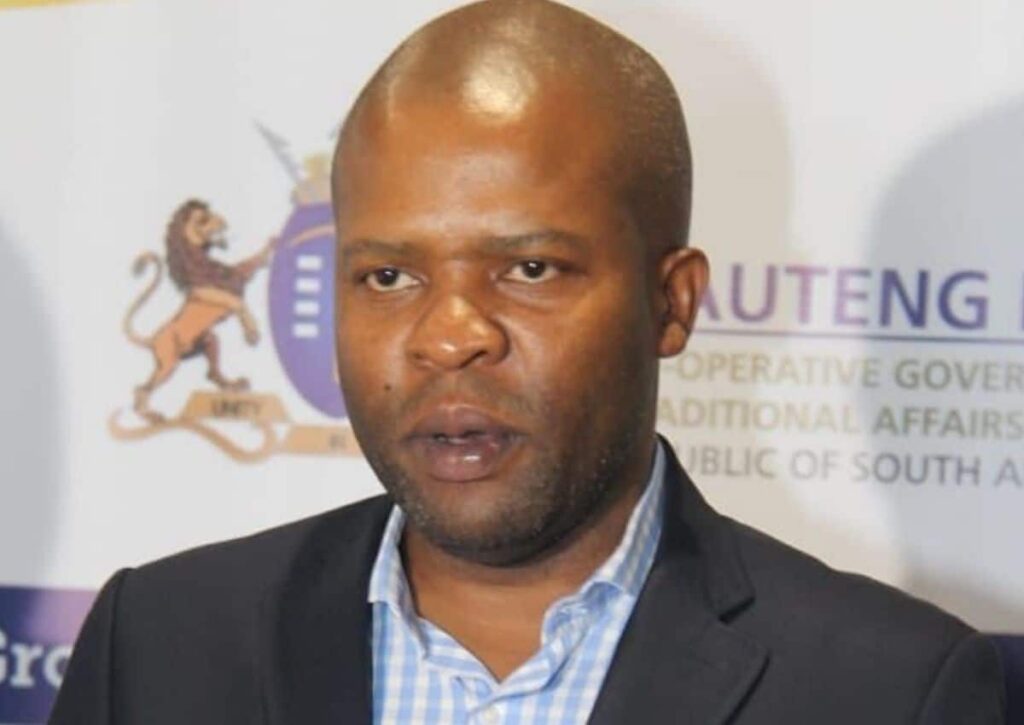The recent devastating fire that claimed the lives of at least 74 individuals and left scores more injured within a hijacked five-storey building in central Johannesburg has sent shockwaves through the city. In the aftermath of this heart-wrenching event, the need for accountability has taken center stage, prompting the Gauteng government to take a decisive stance.
Lebogang Maile, the human settlements MEC of Gauteng, addressed the pressing issue on Monday, emphasising the government’s unwavering commitment to justice. Regardless of nationality, Maile declared that the provincial government has embarked on a mission to evict those unlawfully occupying buildings across Johannesburg. He firmly stated, “Whether they are foreigners or South Africans, anyone who is occupying [a building] illegally” will face eviction.
This stance isn’t just a matter of administrative protocol; it’s an imperative that speaks to the very fabric of justice and the rule of law. The tragedy that unfolded underscores the necessity of holding individuals accountable for their actions, or inaction, when it comes to ensuring the safety and well-being of residents within these buildings.
The path forward requires a systematic approach. It is vital for the courts to grant eviction orders, underscoring the government’s respect for the constitution and the proper channels of justice. The notion that individuals can be removed without due process or a court order is inconceivable in a society governed by the rule of law.
Former Johannesburg mayor and ActionSA president Herman Mashaba’s assertion of identifying “600 hijacked buildings” within the central business district serves as a grim reminder of the longstanding challenges that have been allowed to fester. The responsibility to address these issues falls squarely on the shoulders of all stakeholders involved, particularly the owners and landlords of buildings that have fallen into disrepair or abandonment.
President Cyril Ramaphosa has aptly raised pertinent questions regarding the enforcement of bylaws and the misuse of regulations by unscrupulous actors who exploit vulnerable members of society. Ramaphosa’s call for introspection is a call for action. The President astutely brings attention to how nearly 200 people were permitted to reside in a structurally unsuitable, unsafe building devoid of basic amenities. Such an oversight raises serious concerns about the state’s responsibilities in safeguarding its citizens.
South Africa boasts progressive laws and housing policies, including an emergency housing program, designed to protect vulnerable populations. The efficacy of these policies, however, hinges on their implementation and the accountability of those tasked with upholding them. It is crucial that the full potential of these policies is realized to ensure the safety and well-being of all citizens, regardless of their immigration status.
In the midst of this tragedy, the Socio-Economic Rights Institute of SA’s executive director, Nomzamo Zondo, echoes the necessity of following established protocols. Zondo highlights the emergency housing program as a guide, emphasizing that migrants can and should be beneficiaries of housing assistance during critical circumstances. It is imperative that proper procedures are adhered to in line with the National Housing Code.
City of Joburg’s public safety political head Mgcini Tshwaku underscores the necessity of thorough audits and strategic plans to eradicate the plague of building hijackers and those who exploit noncompliant structures. The pursuit of justice demands a comprehensive approach that uncovers the truth, holds responsible parties accountable, and ensures the safety and dignity of all residents.
In this time of grief and reflection, it is paramount that we collectively demand accountability and justice. Let the tragedy serve as a catalyst for change, prompting a renewed commitment to the safety and well-being of every individual within the Gauteng region and beyond.
